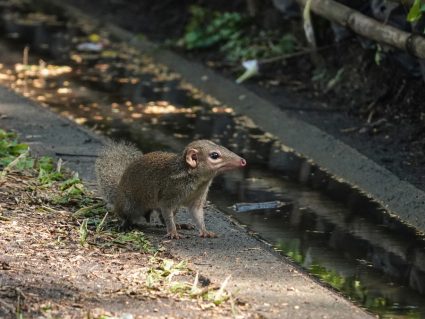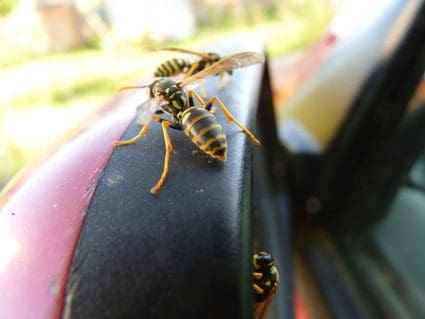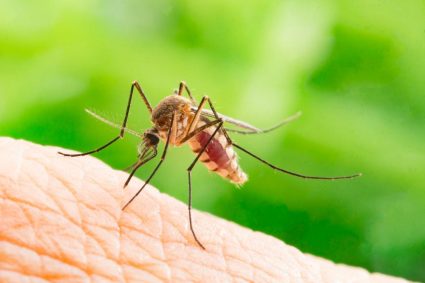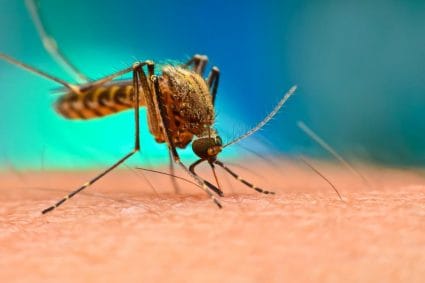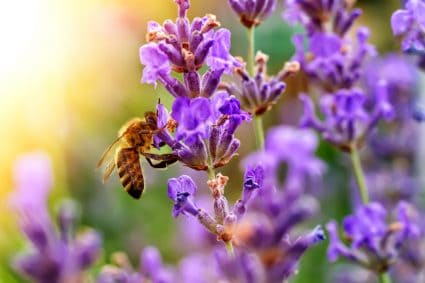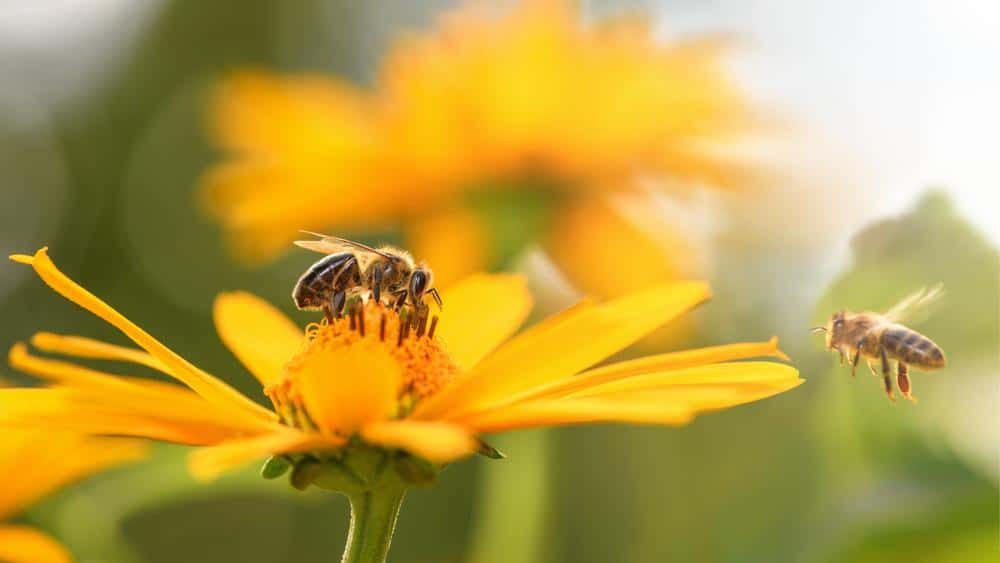
Bees are an integral part of our ecosystem, playing a crucial role in the pollination of plants. However, when they set up shop too close to our homes or outdoor spaces, they can become a nuisance or even a potential hazard, especially for those with bee allergies. Fortunately, there are several natural methods you can use to keep bees away, ensuring a harmonious coexistence. In this comprehensive guide, we will explore how to naturally deter bees.
To naturally keep bees away, you can use cucumber peels, essential oils such as peppermint and citronella, and plant bee-repelling plants like mint and marigolds. You can also use a spray made from equal parts water and distilled vinegar. Avoid using sweet and floral scents in outdoor areas as bees are attracted to these. If these methods aren’t sufficient, consider contacting a professional pest control service or a local beekeeper.
Understanding Bees: A Brief Overview
Before we delve into the methods of keeping bees away, it’s important to understand their behavior. Bees are generally not aggressive unless provoked and are primarily attracted to sweet and floral scents. They are most active during the day, particularly in spring and summer.
Natural Bee Deterrents
1. Cucumber Peels
Cucumbers have a chemical compound that bees find distasteful. Placing cucumber peels near windows or in areas where you notice bee activity can deter them.
2. Essential Oils
Certain essential oils like peppermint, citronella, lemongrass, and eucalyptus are natural bee deterrents. You can add a few drops of these oils to a spray bottle filled with water and spritz around the areas where you want to keep bees away.
3. Bee-Repelling Plants
Plants such as mint, marigolds, and citronella are known to repel bees. Planting these in your garden can deter bees while adding to your garden’s aesthetic appeal.
4. Vinegar Spray
A mixture of equal parts water and distilled vinegar can serve as a simple and effective bee repellent. Spray this solution in areas where you notice bee activity.
5. Avoid Sweet and Floral Scents
Bees are attracted to sweet and floral scents. Avoid using these scents in perfumes, lotions, or other personal care products if you’re spending time outdoors.
Timing and Seasonal Considerations
When implementing these natural bee deterrents, it’s important to consider the time of day and season. Bees are most active during the day and in warmer months, so applying deterrents during these times can be most effective.
Safety First: Implementing Bee Deterrents in Homes with Pets and Children
When using these methods in homes with pets or children, it’s crucial to ensure the deterrents are safe. Opt for non-toxic, pet-friendly, and child-safe products and methods. Always supervise children and pets during the application of these deterrents.
When Natural Deterrents Aren’t Enough
If natural deterrents aren’t sufficient, consider contacting a professional pest control service or a local beekeeper. These experts can safely remove bees or hives from your property without causing harm to the bees or the surrounding environment.
Conclusion
While bees are crucial for our ecosystem, it’s understandable that we don’t want them buzzing too close to our homes or outdoor spaces. With these natural bee deterrents, you can keep bees at a safe distance, ensuring the safety and comfort of your family. Remember, these methods aim to deter bees, not harm them. Always strive for methods that encourage coexistence with these essential pollinators.
Frequently Asked Questions
Can I use any type of vinegar for the vinegar spray deterrent?
Yes, you can use any type of vinegar for the vinegar spray deterrent. However, distilled vinegar is often recommended due to its strong odor that bees find off-putting.
Are there any other plants that deter bees?
Yes, other than mint, marigolds, and citronella, there are several other plants that can deter bees. These include geraniums, pennyroyal, and wormwood. However, it’s important to research each plant to ensure it’s suitable and safe for your specific garden environment and household.
Will these methods harm bees?
No, these methods are designed to deter bees, not harm them. They work by creating an environment that bees find unattractive or unsuitable, encouraging them to move elsewhere rather than causing them harm.
Can I use these deterrents inside my house as well?
Yes, these deterrent methods can also be used inside the house. However, ensure to use them in well-ventilated areas and avoid direct contact with skin and eyes.
How often should I apply these deterrents?
The frequency of application can depend on the specific deterrent and the level of bee activity. However, a general rule of thumb is to apply these deterrents once a day, especially during the warm months when bees are most active.


